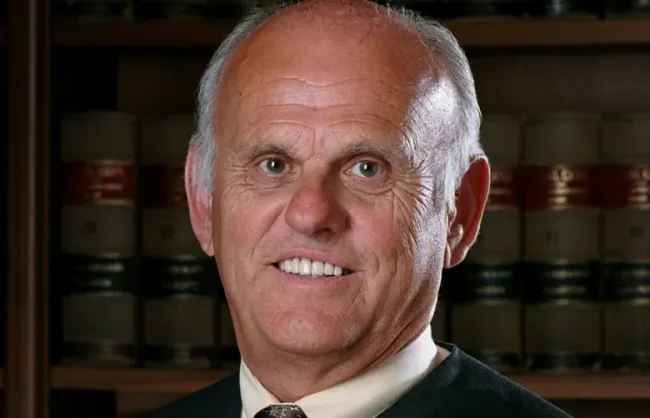Federal Judge John C. Coughenour Blocks Trump’s Birthright Citizenship Order, Deeming It “Blatantly Unconstitutional”
SEATTLE — In a decisive blow to President Donald Trump’s immigration agenda, U.S. District Judge John C. Coughenour, a Reagan appointee, temporarily blocked an executive order that sought to end birthright citizenship for children born in the U.S. to undocumented immigrants. Coughenour called the order “blatantly unconstitutional,” marking a significant setback for the administration’s efforts to reshape U.S. immigration policy.
Key Aspects of the Ruling
Temporary Restraining Order (TRO): Judge Coughenour issued a 14-day nationwide suspension of the policy, which was set to take effect on February 19. This pause allows time for further legal challenges before the case potentially moves forward.
Violation of the Constitution: The judge made it clear that Trump’s order violated the 14th Amendment, which grants citizenship to anyone born on U.S. soil. Coughenour, with over four decades of judicial experience, stated he “couldn’t recall another case where the issue was so clear,” underscoring the clarity of the constitutional violation.
Immediate Consequences: The plaintiffs—Washington, Arizona, Illinois, and Oregon—argued that the order would strip citizenship from up to 255,000 children each year, leaving them stateless and denying them vital rights such as healthcare, education, and federal benefits. States also warned of the financial burden of overhauling eligibility systems.
Courtroom Debate
States’ Argument: Washington Assistant Attorney General Lane Polozola swiftly dismantled the administration's claim that children of undocumented parents aren’t “subject to U.S. jurisdiction,” calling it “absurd.” He reminded the court that these families are still governed by U.S. law, face immigration courts, and must abide by American statutes.
DOJ’s Defense: Justice Department attorney Brett Shumate defended the order as a lawful interpretation of the 14th Amendment. He referenced historical debates over the meaning of “jurisdiction” and argued that states lacked standing to challenge the order. Shumate cautioned against making a quick judgment, predicting the case would eventually reach the Supreme Court.
Constitutional Context
The 14th Amendment, ratified in 1868 to reverse the Dred Scott decision, has long been understood to guarantee birthright citizenship. Trump’s order aimed to narrow this by excluding children of non-citizens, a move that critics have compared to creating a “modern Dred Scott underclass.” This case represents a critical moment in the ongoing battle over the interpretation of this foundational principle.
What’s Next
Trump’s Response: The president vowed to appeal the ruling, with the Department of Justice promising to “vigorously defend” the order. This case is far from over, and the administration is determined to push its controversial policy to the highest courts.
State Leaders’ Reactions: Washington Attorney General Nick Brown celebrated the ruling, declaring, “Nothing the president can do will change [birthright citizenship].” His statement reflected a firm commitment to protecting constitutional rights against the administration’s challenges.
Broader Legal Battle: With five lawsuits involving 22 states and advocacy groups still pending, the legal conflict will likely continue. The case is expected to escalate to the Supreme Court, where a conservative majority could play a pivotal role in determining the future of birthright citizenship in the U.S.
Coughenour’s Other High-Profile Case
In a separate case, Judge Coughenour oversaw the conviction of Justin Baker, a California man found guilty of sexually assaulting a teen on a flight. Sentencing is scheduled for January 21, 2025, but his ruling on birthright citizenship is likely to be his most remembered.
Conclusion
Judge Coughenour’s ruling underscores the vital role of the judiciary in checking executive overreach and defending constitutional rights. As the Trump administration prepares for an appeal, the legal battle over birthright citizenship is far from finished. For now, birthright citizenship remains protected, but the fight to preserve it will continue.
